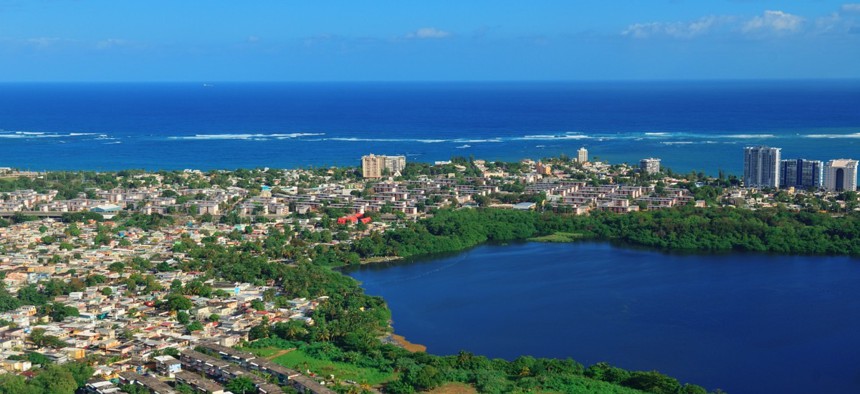Appalachia, Puerto Rico Community Groups Receive $1M for Economic Development

San Juan, Puerto Rico
Eight other local groups across the U.S. also will split the $10 million of Community Thrive Challenge winnings.
About a century ago, as Puerto Rico’s economy shifted from rural to industrial, residents informally settled over two decades among the mangroves along San Juan’s tidal channel.
In the early 2000s, residents worried a comprehensive development plan to environmentally restore that channel, called Caño Martín Peña, would displace those without land titles in favor of gentrification.
Rather than draw up individual land titles, a community land trust called the Fideicomiso de la Tierra del Caño Martín Peña was formed in 2004 to provide for collective ownership of the property. For a time the lands were taken out of the trust by the territorial government, but they were restored in 2013.
In 2016, the land trust won the United Nations World Habitat Award for innovation for how it solved residents’ land tenure issues. People then began thinking of ways to turn that international recognition into an “engine of economic development,” said Lyvia Rodriguez, executive director of restoration project ENLACE Caño Martín Peña.
ENLACE and the grassroots organization G-8 are currently working with the land trust to formalize residents’ land rights through surface rights and transform foreclosed buildings into a hostel for visitors from U.S. universities to stay and observe their work.
The Rockefeller Foundation and Chan Zuckerberg Initiative on Tuesday announced the land trust as one of their 10 Community Thrive Challenge grantees, awarding it $1 million for the two-year hostel project.
“It will be an opportunity to strengthen the land trust and to be able to provide economic opportunities for our residents as well,” Rodriguez told Route Fifty.
Residents without surface rights can’t access mortgages, pass the property on to their children or ensure the land won’t be bought out from under them once the channel is dredged.
But Rodriguez said the land rights residents have right now are valuable. She noted that tens of thousands of families were initially denied federal assistance after Hurricane Maria because they could not prove their property rights, but people in the land trust received money—proving it is a viable model.
The Community Thrive Challenge targeted local organizations improving economic opportunity by tackling systemic challenges, including youth incarceration and recidivism.
“We’ve already learned a lot from these local leaders and hope that others around the country will find useful lessons in these community-driven approaches,” said Priscilla Chan, cofounder of the Chan Zuckerberg Initiative.
Other winners included: Benefits Data Trust in Philadelphia; BronxConnect in New York City; CASA in Langley Park, Maryland; The Industrial Commons in Morganton, North Carolina; MoFi in Missoula, Montana; Onward Financial, Inc. in Kansas City, Missouri; Project QUEST, Inc. in San Antonio, Texas; and the South Carolina Community Loan Fund in Charleston.
Another winner, the Coalfield Development Corporation in Wayne, West Virginia, was founded in 2010 with the goal of ending generational poverty in Appalachia.
“We have an economy that traditionally has been dominated by one extractive industry: the coal industry,” said Brandon Dennison, founder of CDC. “We’re trying to diversify the economy.”
CDC began in the local construction industry pioneering a 33-6-3 model: 33 hours of paid labor for participants, 6 hours of higher education class time, and 3 hours of life skills mentorship each week. By hiring the unemployed or underemployed, CDC not only aims to transform lives but brings in new business investment to economically depressed communities.
The organization has branched out into sustainable agriculture, solar, light manufacturing, and service and retail industries with an eye toward identifying new partners.
A $1 million Community Thrive Challenge grant will help the operation scale next year but at a controlled pace that is “led by local people and is grounded in our local community,” Dennison said.
The challenge’s peer review process for grant submissions forced CDC to get more strategic, and Dennison said he wants to spread to more extraction-based communities in southwestern West Virginia.
“We just try to survive, keep our head above water,” Dennison said. “But we’re tired of doing that.”
Dave Nyczepir is a News Editor at Government Executive’s Route Fifty and is based in Washington, D.C.
NEXT STORY: Firing Leads to Confusing ‘Three-Day Misadventure’ at New York City Hall






